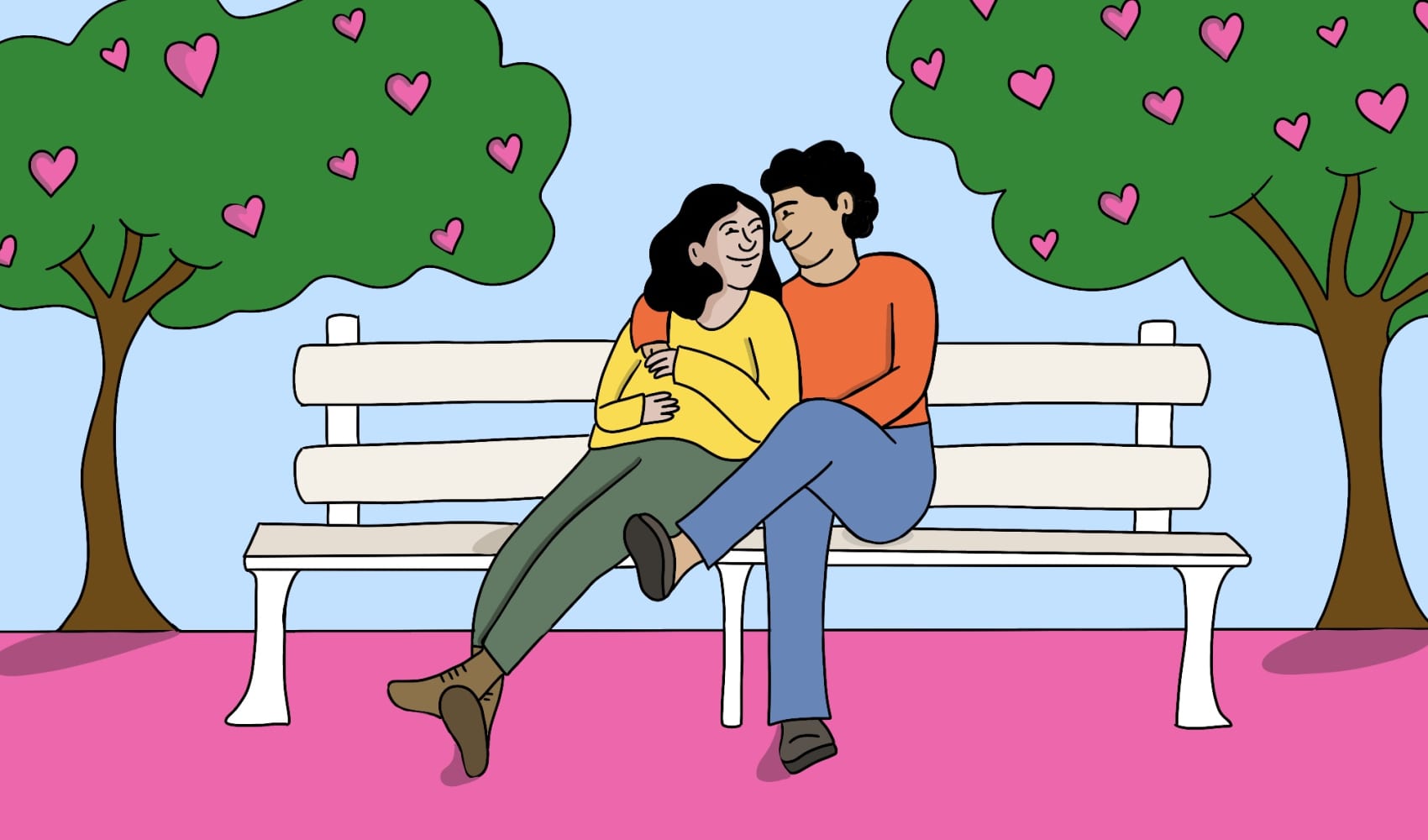Numb After Success? How to Finally Enjoy Your Wins
Feeling Empty After Big Wins? Why You're Numb & How to Reignite Joy
Introduction: The Unexpected Letdown After Victory
Graduating from college, landing your dream job, or receiving an award at work are milestones that typically leave people feeling on top of the world – proud, accomplished, and buzzing with excitement for what's next. But what happens when the confetti settles and you're… just…meh? What if, instead of fireworks, you feel a strange sense of emptiness or even numbness?
It's a surprisingly common experience, and you're definitely not alone. This article dives into the reasons why you might feel disconnected from your wins, explores the underlying psychology, and offers practical strategies to reignite your joy and savor those hard-earned moments.
Understanding Anhedonia: The Thief of Pleasure
"One of the most common reasons that people feel numb to wins is something called anhedonia," explains Dr. Judith Joseph, board-certified psychiatrist and author of "High Functioning," a book about overcoming high-functioning depression. Think of anhedonia as a dimmer switch on your pleasure response.
What Exactly is Anhedonia?
Anhedonia, put simply, is the inability to experience pleasure. "Anhedonia is when people lack feeling and pleasure in the things that they used to enjoy," Dr. Joseph elaborates. "For example, you used to enjoy going outside and being in nature, but now you don't get the same excitement. Or you used to enjoy your favorite music, and when it plays it doesn't light you up anymore."
Anhedonia: A Symptom, Not a Disease
It's crucial to remember that anhedonia is a symptom, not a condition in itself. Experiencing anhedonia is typically a sign of an underlying issue, often a mood disorder like depression, but it can also be linked to anxiety, stress, or even certain medical conditions.
The "Joy is an Experience, Happiness is an Idea" Dichotomy
This quote perfectly encapsulates the difference between fleeting happiness and a deep, lasting sense of joy. Happiness is often tied to external achievements – the graduation, the promotion, the winning lottery ticket. Joy, on the other hand, is an internal experience, a feeling of deep contentment and connection that comes from within.
Chasing Happiness vs. Cultivating Joy
We often chase happiness by setting goals and achieving them, believing that these external milestones will bring us lasting fulfillment. But what happens when we reach those goals and the promised happiness doesn't materialize? We feel let down, disillusioned, and even numb.
The Importance of Experiencing Joy
Cultivating joy involves focusing on experiences that nourish our souls – spending time in nature, connecting with loved ones, engaging in creative pursuits, practicing mindfulness, or helping others. These experiences create lasting positive emotions and a sense of purpose that transcends external achievements.
The Pressure of Perfectionism and Achievement
In today's high-achieving society, many people struggle with perfectionism and the constant pressure to succeed. This relentless pursuit of excellence can actually sabotage our ability to enjoy our wins.
The "Never Good Enough" Mentality
If you're constantly striving for perfection, you might find it difficult to appreciate your accomplishments. You're always focused on what you could have done better, or what you still need to achieve, instead of savoring the moment and acknowledging your progress.
The Fear of Losing It All
Sometimes, the fear of losing what we've achieved can also contribute to numbness. We become so preoccupied with maintaining our success that we forget to enjoy it. The pressure to stay on top can be overwhelming, leaving us feeling anxious and disconnected.
Burnout: The Silent Joy Killer
Burnout, characterized by emotional exhaustion, cynicism, and a sense of detachment, is another common culprit behind feeling numb to wins. When you're constantly pushing yourself to the limit, you deplete your emotional reserves and lose your capacity for joy.
Recognizing the Signs of Burnout
Are you feeling constantly tired, irritable, or unmotivated? Do you find yourself dreading work or social activities? Are you struggling to concentrate or sleep? These are all potential signs of burnout. Recognizing these signs early is crucial for preventing further emotional depletion.
Prioritizing Rest and Self-Care
If you suspect you're experiencing burnout, it's essential to prioritize rest and self-care. Take time off work, engage in activities that you enjoy, and practice relaxation techniques like meditation or yoga. Recharging your batteries is crucial for regaining your capacity for joy.
The Role of Dopamine and Reward Systems
Dopamine, often referred to as the "pleasure chemical," plays a crucial role in our reward system. When we achieve a goal, our brain releases dopamine, creating a sense of pleasure and motivation. However, repeated exposure to the same rewards can lead to dopamine desensitization.
Dopamine Desensitization: The Hedonic Treadmill
This phenomenon, known as the hedonic treadmill, explains why we often adapt to positive experiences and return to a relatively stable level of happiness, even after achieving major goals. The initial dopamine rush fades, and we need increasingly bigger rewards to experience the same level of pleasure. This can lead to a feeling of numbness and a constant need for more.
Strategies to Reset Your Dopamine Levels
- Vary Your Rewards: Don't rely on the same sources of pleasure. Try new activities and experiences to stimulate your dopamine system in different ways.
- Practice Delayed Gratification: Resist the urge for instant gratification and learn to appreciate the anticipation of future rewards.
- Engage in Meaningful Activities: Focus on activities that provide a sense of purpose and fulfillment, rather than just fleeting pleasure.
Mindfulness and Gratitude: Reconnecting with the Present Moment
Practicing mindfulness and gratitude can help you reconnect with the present moment and appreciate the small joys in life. By focusing on the here and now, you can break free from the cycle of chasing future achievements and start savoring the present.
The Power of Mindfulness
Mindfulness involves paying attention to your thoughts, feelings, and sensations without judgment. This practice can help you become more aware of your emotional state and identify the underlying reasons for your numbness.
Cultivating Gratitude
Gratitude involves focusing on the things you're thankful for in your life. This practice can help you shift your perspective from what you lack to what you have, fostering a sense of contentment and appreciation.
Reconnecting with Your Values and Purpose
Sometimes, feeling numb to wins can be a sign that you're not living in alignment with your values and purpose. When your goals are not aligned with your core beliefs, achieving them can feel empty and unsatisfying.
Identifying Your Core Values
Take some time to reflect on what truly matters to you in life. What are your guiding principles? What do you stand for? Identifying your core values can help you make decisions that are more aligned with your authentic self.
Setting Meaningful Goals
Set goals that are aligned with your values and purpose. Focus on activities that bring you a sense of fulfillment and contribute to something larger than yourself. When your goals are meaningful, achieving them will be much more rewarding.
Seeking Professional Help: When to Reach Out
If you're struggling to overcome your numbness on your own, it's important to seek professional help. A therapist or psychiatrist can help you identify the underlying causes of your anhedonia and develop a personalized treatment plan.
Therapy and Counseling
Therapy can provide you with a safe and supportive space to explore your emotions, identify unhealthy thought patterns, and develop coping strategies. Cognitive behavioral therapy (CBT) and dialectical behavior therapy (DBT) are two common therapeutic approaches that can be effective in treating anhedonia.
Medication
In some cases, medication may be necessary to address underlying mood disorders like depression or anxiety. A psychiatrist can evaluate your symptoms and prescribe appropriate medication to help you regulate your mood and regain your capacity for joy.
Reframing Success: It's Not Just About the Destination
We are so goal-oriented, that we often forget to enjoy the journey! What if success isn't just about the destination, but about all the lessons learned and growth you have achieved on the way? It's time to change the perspective!
The Importance of the Journey
Instead of solely focusing on end results, it is important to focus on the journey, the lessons learned, and personal growth achieved on the way. Embracing setbacks as opportunities for learning and growth can greatly enrich our experiences and increase our capacity to enjoy the entire process.
Celebrate Small Wins
Celebrating small wins along the way can help keep us motivated and appreciate our journey. Acknowledging the progress made, even if it is incremental, enhances our enjoyment and reduces our dependence on major achievements to feel successful.
Breaking the Cycle: Practical Steps to Reignite Joy
Alright, enough theory! Let's get practical. Here are some actionable steps you can take to start reigniting your joy:
Actionable Steps
- Schedule Joy: Sounds counterintuitive, but consciously carve out time for activities you *used* to enjoy. Even if you don't feel the spark right away, keep at it.
- Challenge Negative Thoughts: Identify and challenge negative thought patterns that contribute to your numbness. Replace them with more positive and realistic ones.
- Connect with Others: Spend time with loved ones who support and uplift you. Social connection is essential for emotional well-being.
- Practice Self-Compassion: Be kind to yourself. Acknowledge your struggles and treat yourself with the same compassion you would offer a friend.
- Get Moving: Exercise is a powerful mood booster. Even a short walk can make a difference.
Conclusion: Reclaiming Your Joy
Feeling numb to your wins is a frustrating experience, but it's not a permanent state. By understanding the underlying causes, challenging negative thought patterns, and prioritizing experiences that nourish your soul, you can reclaim your joy and start savoring those hard-earned moments. Remember, joy is an experience, not just an idea. It's within your reach.
Frequently Asked Questions
1. What is the difference between anhedonia and just feeling "blah"?
Anhedonia is characterized by a significant decrease or loss of interest and pleasure in activities you previously enjoyed. Feeling "blah" might be a temporary dip in mood, while anhedonia is more persistent and pervasive.
2. Can anhedonia be caused by physical health issues?
Yes, certain medical conditions, such as chronic pain, hormonal imbalances, and neurological disorders, can contribute to anhedonia. It's always best to consult with a doctor to rule out any underlying medical causes.
3. How long does it typically take to overcome anhedonia?
The timeline for overcoming anhedonia varies depending on the underlying cause and the effectiveness of the treatment. It can take weeks or months to see significant improvement, and consistent effort is key.
4. What if I don't know what activities I used to enjoy?
Start by experimenting with different activities and see what sparks your interest. Try things you enjoyed as a child, explore new hobbies, or ask friends and family for suggestions. Don't be afraid to step outside of your comfort zone.
5. Is medication always necessary to treat anhedonia?
Not necessarily. Therapy, lifestyle changes, and self-care strategies can be effective in treating anhedonia, especially if it's related to stress, burnout, or mild depression. However, if your anhedonia is severe or related to a more serious mood disorder, medication may be recommended in conjunction with therapy.



